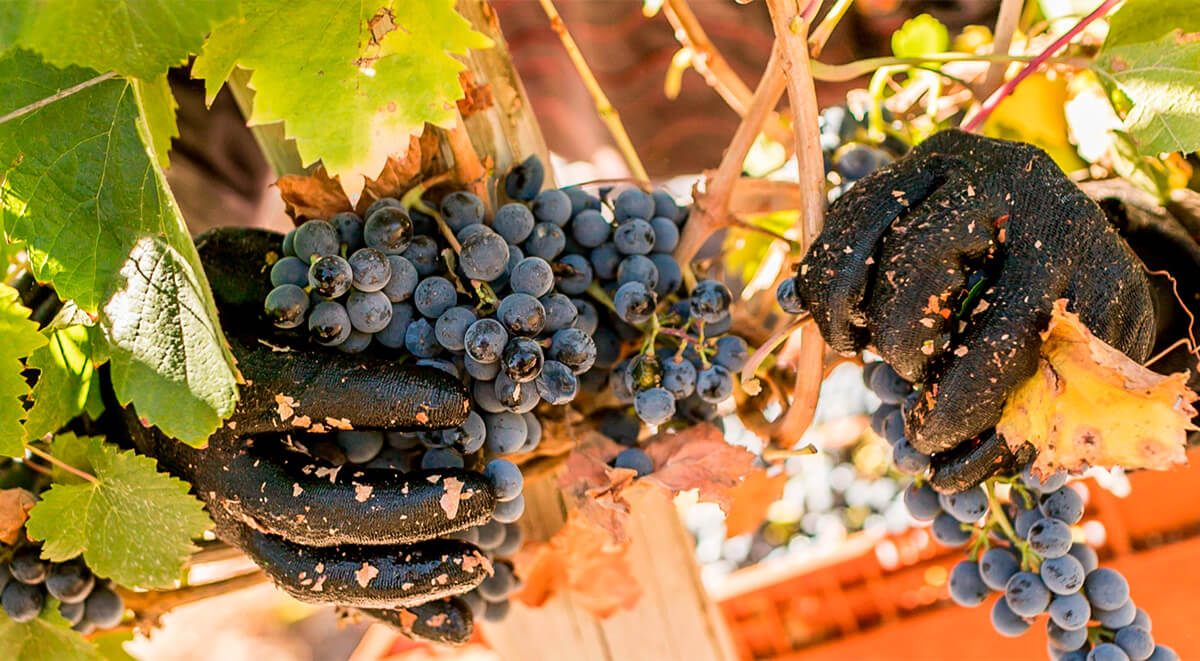

In line with the highest international standards, Grupo Peñaflor Viticulture Department conducts a responsible and environment-friendly management of resources, through the application of sustainable practices in vineyards management.
Since the year 2013, all Grupo Peñaflor vineyards have been certified under the Good Agricultural Practices Standards (Global GAP) and the Fair for Life Certification for Social Accountability and Fair Trade Practices, thus guaranteeing everything related to food safety, sustainable production methods, responsible use of water, workers’ welfare and vegetal reproduction materials.
Consequently, the introduction and development of sustainable agricultural practices is a continuous and evolving process that calls for long-term commitment and requires our viticulture team to carry out an in-depth study of each vineyard activity.
Firstly, it is essential to obtain an extensive knowledge of each of the environments we own in our 6,000 hectares of land (cultivated and/or virgin lands to be implanted). This implies a regional assessment of different indicators, such as slopes, geomorphologic and topographical information, convergence indexes and weather issues.
Said analyses are followed by specific assessments at the site where the vineyard is to be implanted. This requires the use of techniques such as soil mapping, through the use of probes to measure electric conductivity, test pits and direction analysis as well as analyses of the physical, chemical variables and the presence of plagues. After this data has been interpreted, some aspects may be defined, such as the most adequate plantation density, trellis systems and which rootstocks and clones are most suitable for each plot.
A sustainable vineyard can only be achieved with naturally balanced vines, without growth deficiencies or excesses. When this balance is reached, said vineyard will demand fewer resources and will achieve a direct relation between quality and productivity.
Due to the fact that water is one of the most important resources in wine production, our vineyards water irrigation management is based on three cornerstones: strategy, planning and monitoring. Our team has an accurate knowledge of the vineyard need for water in each plant cycle. Thus, optimal irrigation frequencies and times are defined. Also, hydrological restrictions are determined for key plant ripeness stages with the aim of maximizing grape quality. The different variables monitoring and follow-up is conducted through soil humidity probes, pressure chambers and pore meters to determine the plant water status.
Regarding soil management, the objective is to measure and stimulate biological activity through the use of natural or sown vegetation covers and compost. When the soil physical properties are optimal, the nutritional management is based on the replacement of nutrients extracted from the harvest so as to keep its future fertility. Besides, petiole analyses are conducted at bloom time to detect any deficiency and be able to correct it promptly, if necessary.
It should be mentioned that the assessment, selection and introduction of vegetal materials of high sanitary, genetic and enological quality have been defined as one of our strategic objectives. Thanks to the selection of clones, massal selection and rootstock suitable for each soil and weather, each of the plots will be implanted with the highest quality species.
Driven by our long-term vision, we have decided to undertake the creation and development of our own plant nursery. In addition, in 2018 we signed a 20-year agreement with the French ENTAV-INRA, leading world entity in wine vines clone selection. This agreement facilitates stems materials to our agricultural engineers so that they can create our own pre-multiplication plots and increment blocks for future vineyards.
Given the need to deepen and increase the knowledge of our viticulture team, we created a research and development area, which seeks to determine each performed activity`s qualitative impact on grape and wine, with the aim of defining and adapting the best practices for each Argentine sub-climate where we operate.
We undertake the commitment to conduct our operations in an environment- friendly manner that is close to people. We promote the generation of jobs in each of the regions where we operate, focusing on the training of our staff and the development of new capacities. We also offer permanent guidance to our primary producers, who are an essential key link in our value chain.
Agricultural Engineer Marcelo Belmonte, MSc.
